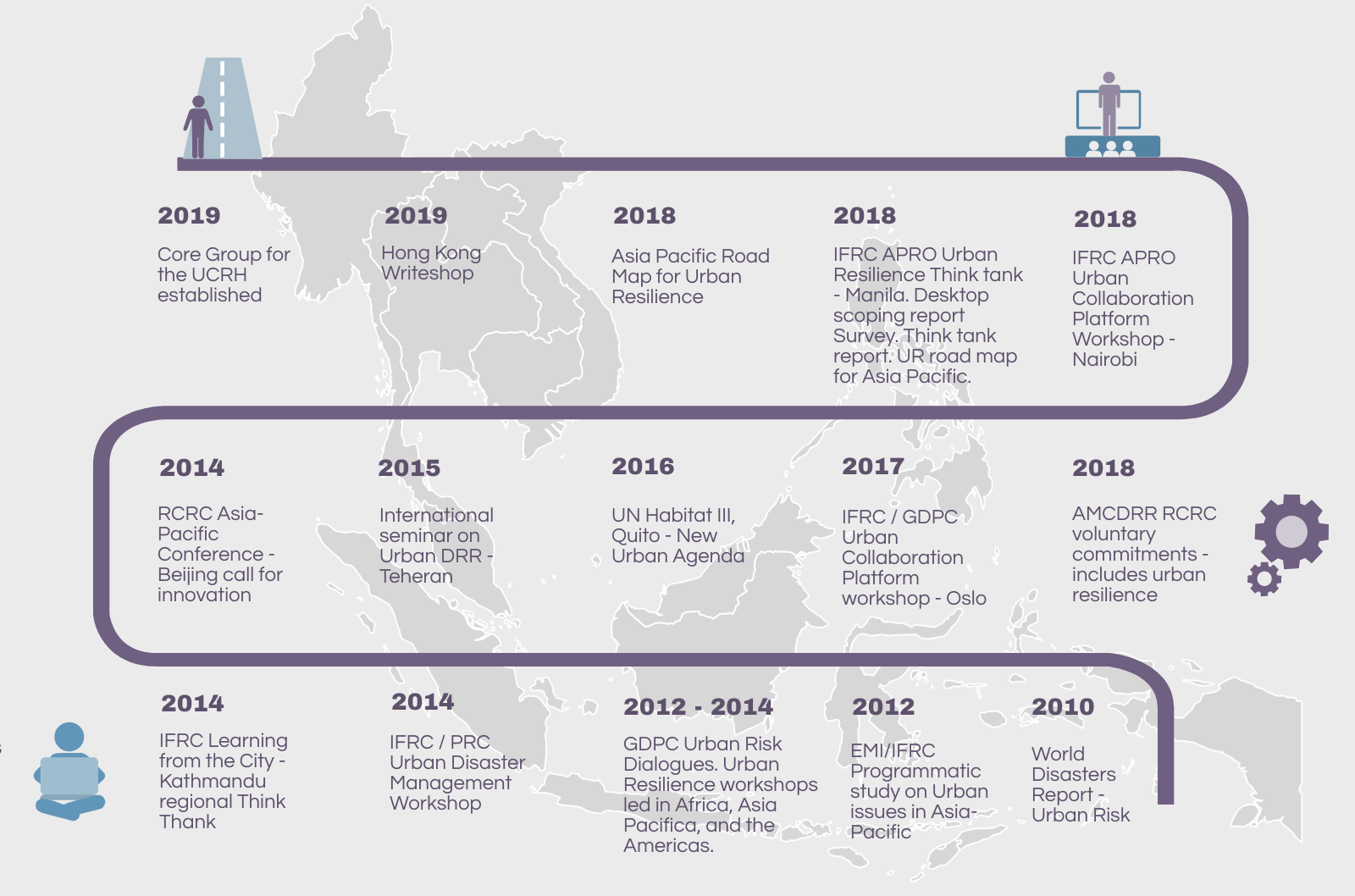Urban Hub About Us
Motivation
Urbanisation has become a driving force of development with the power to change and improve lives, but at the same time urban centres have become hotspots of risks for crises. These challenges are particularly acute in the Asia Pacific region, where around 60% of the world population live, more than 40% of them live in urban areas, and holds 7 out of the 10 most populated cities in the world. Moreover, this is the most affected region by disasters in the world, and the effects of climate change and conflicts, challenge everyday even more the capacity of cities to cope with extreme events and crises. In this context the Red Cross Red Crescent (RCRC) Movement has worked consistently to keep up with the challenge. Through its network of national societies and their chapters it is increasing efforts in preparedness and contingency planning, as well as, increasing an active presence in urban settings to respond to disasters and crisis including the 2011 Great East Japan Earthquake & Tsunami and the 2015 Nepal Earthquake (Kathmandu Valley), among many others programming initiative. In order to make the most out of the growing experience in urban resilience, Disaster Risk Reduction and response in the AP region the UCRH is a new opportunity for sharing knowledge and interconnect among humanitarian actors in the region in order to continue working to amplify the voice of vulnerable people for the development of more resilient communities in complex urban areas.
- Strengthen the connections among urban resilience actors in AP region to promote innovative approaches to tackle urban resilience challenges.
- Promote knowledge sharing and evidence-based programming within the RCRC movement and the wider humanitarian community.
- Improve organizational resilience through a continuous process of learning and adaptation to changing contexts.
Background
Develop knowledge and skills base within the RCRC Movement and the wider humanitarian community. 
Relevance
As one of the key steps in the Asia Pacific Road Map for Urban Resilience and in line with the Strategy for Urban Resilience, this initiative contributes to regional and global initiatives aligning its purpose to the sustainable development goal 11: Make cities and human settlements inclusive, safe, resilient and sustainable, will contribute to the Goal and Targets of the Sendai Framework for Disaster Risk reduction and its Four Priorities for Action, and supports the New Urban Agenda commitment to strengthen resilience in cities to reduce the risk and the impact of disasters.
Objectives
- Establish strong connections for urban resilience through city-wide coalitions, shared commitments with city emergency management systems, alignment with local, national, regional and global levels, and advocacy for enhanced community resilience.
- Develop knowledge and skills base through capacity building for urban resilience based on evidence and shared learning with Red Cross Red Crescent and wider network of partners.
- Strengthen organizational resilience by adapting urban resilience tools and approaches, facilitate long-term planning and funding, adapt urban volunteer management and support contingency planning so Red Cross Red Crescent National Societies can continue to serve urban populations after disasters.
